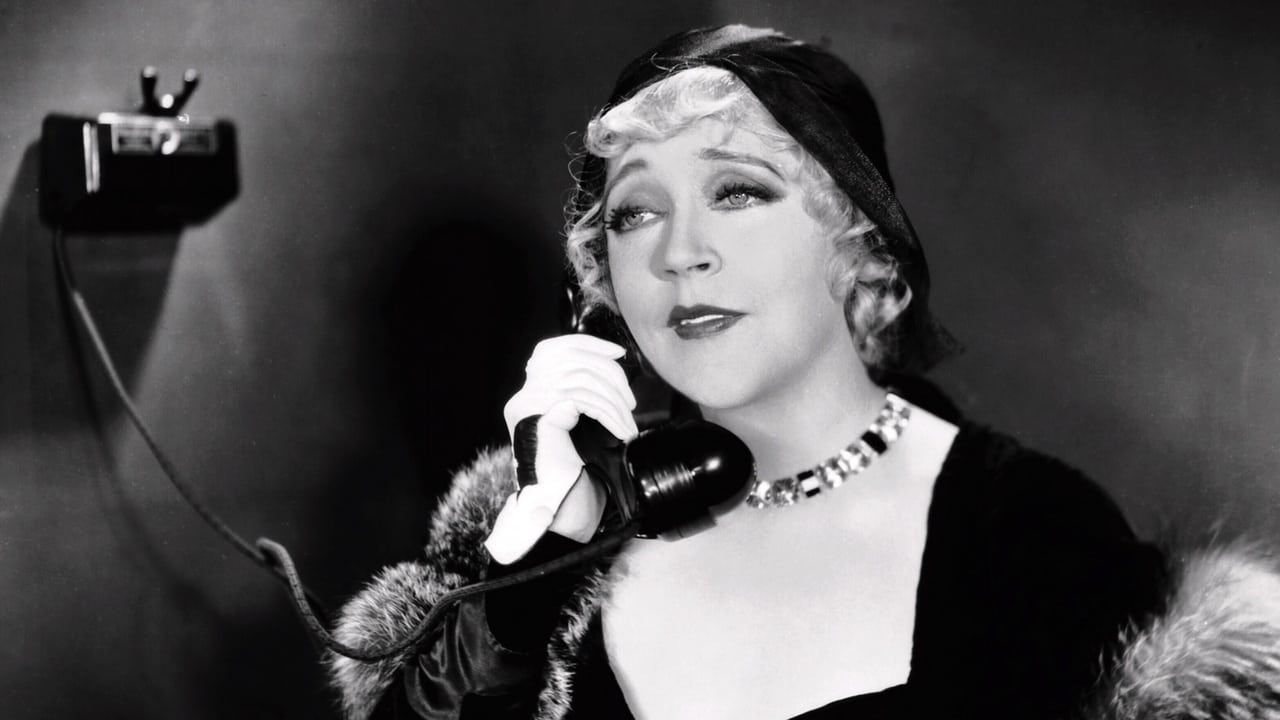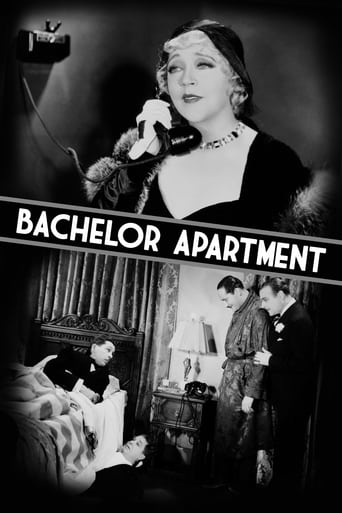

Expert direction by Lowell Sherman. He acts up a storm as well as playboy, wanting to become more ethical in his life. This is especially so when his friend's wife tries more than just flirting with him. The wife, Mae Murray, steals the show here with her threats, laughter and qualities of a woman who just didn't know when she had it so good.Sherman lives on Park Avenue and has built up a business dealing with the market all by himself. On the other side of town, would-be-stenographer Irene Dunne lives with her selfish sister, the latter wanting to break into Broadway. When the latter is fooled by Sherman's butler, thinking that he's the wealthy playboy, the fun begins. Dunne meets the Sherman character and the wonderful coincidence is that she applies for the job at the company he heads.This is really a story of about how people feel about themselves. It has comical and dramatic overtones.
... View MoreWe open on an bachelor apartment. We know this, because the place is trashed and littered with glasses, champagne bottles, cigarette butts, and something that looks like cigarettes all over the place, from the night before. We also know this, because this is aptly named "Bachelor Apartment." The bachelor in question is Lowell Sherman, whose other screen credits include What Price Hollywood?, the original "A Star is Born" movie, and his silent movies where he usually played the villain with the pencil-thin mustache. Here, he tries to stop playing the game, after finding it very tiresome having to keep track of who comes and goes through his revolving door. But it seems he decided just this morning. It makes the viewer wonder if this decision is one he makes all the time. But, in the meantime, the, er, um, ladies, yes well, they don't know of his conversion to sainthood and still show up unannounced, notably Mae Murray, in an unforgettable and saucy role, who can be seen in one scene in a see-through nightgown. Really! You can see.... Her husband suspects she's cheating and it's driving him crazy, He's going to find the @#$*& or die trying. Meanwhile, through a series of events, Irene Dunne enters the picture as a stenographer who doesn't like fast workers for bosses. He dares her to take this well-paying job, which she does. Will she fall for his charming ways? Will Irene's clean reputation rub off on him and make him see the light? Only I know, and you've got to see this very well-written and racy Pre-Code movie to find out.
... View MoreLowell Sherman had some success as an actor and some success as a director without ever becoming a major name in either speciality: the most interesting thing (but one) about 'Bachelor Apartment' is that he both directed and starred in it. As a screen personality, Sherman was probably the nearest thing to George Sanders before Sanders came along: Sherman typically played a wealthy cad who seduced women solely for his own pleasure, with no concern for their welfare. In at least one movie, 'You Never Know Women', Sanders's character is perfectly willing to commit rape.As I've noted in a previous IMDb review, I find Sherman implausible in such roles. I know almost nothing about his offscreen life (and I don't much want to know), but on the screen he tends to come across (to me, at least) as if he is gay ... in that word's modern sense. Sherman nearly always played skirt-chasers, yet I invariably find him unbelievable as a playboy. He was a talented actor, yet seemed much more believable when playing characters who were epicene (he was brilliant in 'What Price Hollywood?') or men whose sexuality was irrelevant to the plot (as in 'Mammy'). In 'Bachelor Apartment', Sherman portrays Wayne Carter, a millionaire businessman who's also a playboy ... so credibility flies out the window.Carter's only roommate is his live-in butler, very well-played by Charles Coleman ... but we understand that a vast series of women have spent their nights (not all at the same go, mind you) alongside Carter in his bed.I'd mentioned the most interesting thing but one about this movie. Here's the MOST interesting thing about it: the plot line of 'Bachelor Apartment' seems to anticipate two much better works, namely 'My Sister Eileen' and 'Neptune's Daughter' (the latter an MGM musical that had a much neater plot than usual for MGM musicals). Along to New York City come two small-town sisters: the older one level-headed, the younger one much prettier and flirty with it. (Did anybody mention Ruth McKinney and her sister Eileen?) The younger one (well-played by the obscure Claudia Dell) meets the millionaire's butler and mistakenly believes (for contrived reasons) that the butler is the millionaire himself. When protective older sister Irene Dunne learns that her younger sister is involved with millionaire Carter (actually the butler), she stomps into Carter's executive suite to straighten him out. For once genuinely innocent of womanising, Carter doesn't know anything about it ... yet he finds himself attracted to Dunne, and he gets ready to award her the next notch on his bedpost.VERY OBVIOUS SPOILER. It's simultaneously bang obvious and wildly implausible what's going to happen, yet it happens anyway. Carter, planning to seduce Dunne, ends up sincerely falling in love with her ... and (get this, please) he actually gives up his tom-catting to marry her and settle down! Oh, pull the other one.I had more trouble believing this movie than I did with several other Lowell Sherman vehicles. Irene Done has never dunne (I mean Irene Dunne has never done) a thing for me; I've never found her especially attractive nor especially sexy, and I simply couldn't believe that this millionaire playboy would chuck his sybaritic life for this particular woman. In this movie, Irene Dunne wears a hairstyle that renders her even more unattractive than usual. Further, I had the same credibility issue here that I do with most other movies in which a working-class heroine lands a wealthy husband: we're meant to believe that she sincerely loves him, yet she's fully aware that the huge bulge in his trousers is his bank balance. Since the husband is a playboy who has habitually exploited women, it's hard to believe that he never wonders if perhaps he is being exploited in turn by a gold-digger.On the positive side, 'Bachelor Apartment' has one of those great old-movie casts with several interesting performers in supporting roles. Claudia Dell and Charles Coleman, both obscure, are excellent here. Perennial dress extra Bess Flowers has a larger role than usual here. Less favourably, Arthur Housman, in the role of a drunk (what a stretch!), does absolutely nothing here that he didn't do better and funnier while cast as a drunk in fifty other movies. Norman Kerry, cast in a supporting role in this early talkie, proves why his stardom ended in silent movies.'Bachelor Apartment' is well-made; Lowell Sherman was an under-rated director, and might conceivably have gone on to greater success behind the camera after he became too old to carry on in skirt-chaser roles. (He died suddenly of pneumonia, aged only 49.) Any film with a Max Steiner score and production by William LeBaron is worthy of attention. When the clichés settle, my rating for this movie is just 6 out of 10.
... View MoreAnother of the movies I would not think of watching but for Irene Dunne, playing anything but swank comedy here. It consists of basically two types of characters. One is ladies in lingerie or revealing gowns. (Dunne wears neither but at one point we see her in her boss's bathrobe.) The other is gentlemen who appear to prefer other gentlemen.One of these is its director and star, Lowell Sherman. He had a solid hand as a director and is likable as a performer. But he's a little hard to buy as a ladies' man. And in one scene, he goes to a friend's apartment, demanding to see who's in the bedroom. Instead of the woman he's looking for, two men are there. They're fully clothed and maybe the audience at the time thought they were sleeping off hangovers. Maybe that's what the script meant, for all I know. But it's not the way they come across in the context of the movie.The print I saw was fuzzy but it's chic and entertaining -- dated but also risqué.
... View More